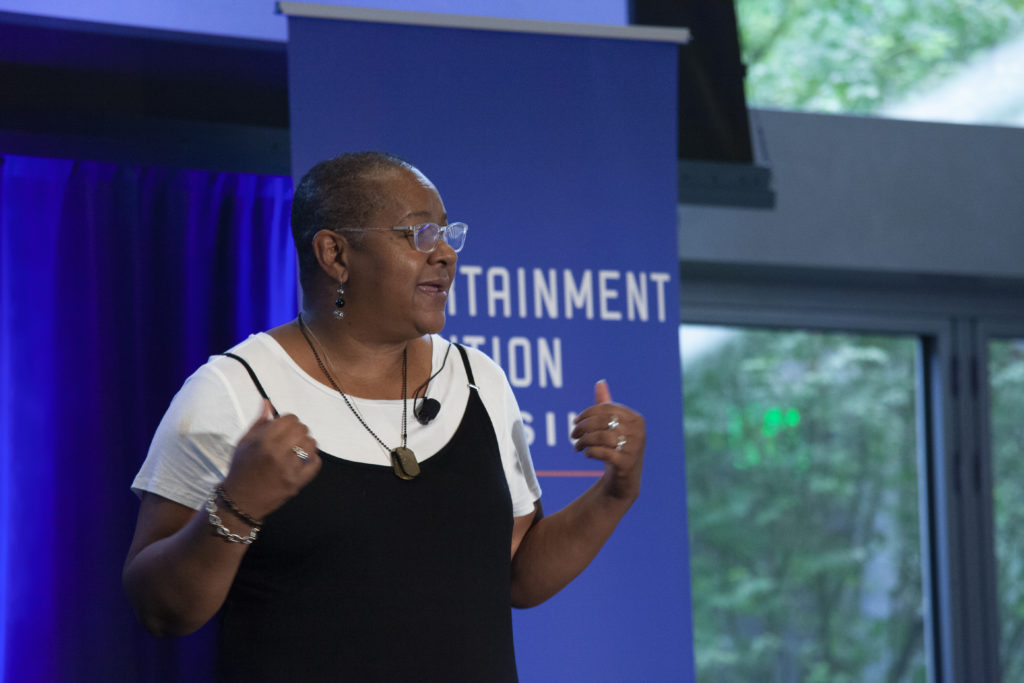M+E Daily

EES Panel: How the AI-Powered Neuro-Programmatic Engine Can Enhance Digital Marketing
Story Highlights
Reset Digital’s Neuro-Programmatic marketing technology platform can significantly enhance digital marketing campaigns, according to Charles Cantu, CEO and founder of IT consulting and services company Reset Digital.
The company’s artificial intelligence-powered Neuro-Programmatic engine allows marketers to connect with unique audiences in a “much deeper and meaningful way than was possible before and yields outcomes that are significantly better, it says at its website.
Pointing to the work that Cantu and his company are doing, Melva Benoit, president and founder of The Marian Dupree Group and executive professor, digital media and innovation, at Pepperdine University, Graziadio School of Business and Management, said Sept. 21 at the Entertainment Evolution Symposium (EES): It’s like I have now finally found a partner in crime who actually understands where we are” with data.
“We have enough data where we can talk about data inside of our business,” she said during the session “Should I Second That Emotion?”
“Where we are with Neuro is in a place where there’s enough data to begin to sort of think differently about analysis,” she said.
“We invented the term neuro-programmatic and the reason why we did that was because neuromarketing prior to us, anything to do with wiring people with EEG machines and sensors on their skin and kernel hats and so on and so forth but never being able to activate and certainly never really getting into the psychology, the science, the cognitive science of how to apply that and why it’s doing what it’s doing,” he explained.
 Already, “we’ve done tons and tons of testing” with the technology, from HBO to A&E, CBS and now Procter & Gamble and Unilever and others,” he said.
Already, “we’ve done tons and tons of testing” with the technology, from HBO to A&E, CBS and now Procter & Gamble and Unilever and others,” he said.
Meanwhile, “if you think about the history of testing content … everything was about talking to audiences and understanding why they were having the response to the content they were having,” Benoit pointed out.
“And then being able to communicate that to a creative, to a business person, to someone to begin to understand what decisions needed to be made, whether we move forward with a show or not move forward with a show,” she added. “Oftentimes, it felt like … although we had a ton of survey data, it wasn’t rich enough.”
What Reset Digital is doing is “we’re extrapolating what is in that content and we’re extrapolating what’s in media and the environments that you’re going to be so that you can speak to people how they like to be spoken to so that you can begin to treat people how they like to be treated,” Cantu told attendees.
“What we’re now able to do is extrapolate and speak to human beings as human beings first and, when you layer culture to it [it] is a massive multiplier on performance and ROI in every category,” he said.
“Now I can look at this content through the prism that Reset has given me and I can see … this piece of content is actually inspiring anger,” Benoit noted. It’s pushing fear, it’s pushing some of these other things, and that is interpreted in a different way across different audiences.
Claudio Ludovisi, assistant dean, marketing and strategy, at Pepperdine Graziadio Business School, introduced the speakers.
The Entertainment Evolution Symposium (EES) was presented by the Pepperdine Graziadio Business School Institute for Entertainment, Media and Sports (IEMS) and the Hollywood IT Society (HITS) and was sponsored by Iron Mountain, Signiant, Whip Media, Atos, Fortinet, FPT Software, invenioLSI, Perforce, Vision Media, and EIDR.









